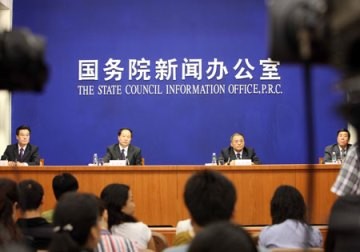The Chinese government has recently unveiled a plan that eyes to deepen reforms in the country's state-owned enterprises (SOEs) sector composed of 150,000 firms, 30 million employees and is worth 100 trillion yuan in assets.
The State Council and Communist Party of China's Central Committee jointly issued the guidelines expected to improve assets management and corporate governance in the sector.
According to the Xinhua News Agency, the government expects to see "decisive results by 2020."
For analysts, the guidelines will help clearly define the nature of state-owned assets and capitals and enliven the said sector, which is regarded as one of the keys that will help advance China's economic transformation and upgrading.
Under the guidelines, the SOEs will be divided into two: those that serve public interests and those that seek commercial ones.
Peking University professor Zhang Chinxiao said that this kind of "categorization will allow SOEs to better fulfill their duties, which are threefold, with economic, social, and political responsibilities."
"Commercial SOEs will focus on growing its value, maintaining its vibrancy and striving to be leaders in various sectors. Public SOEs will focus on safeguarding people's livelihoods and providing high-quality, affordable public goods and services," Zhang further remarked.
Additionally, the guidelines mark the government's call for a shift from SOEs management to state capital supervision, giving the companies' management the authority to fully run the organization.
As well, state-owned capital management and capital investment firms will be established.
The guidelines also state that as much as 30 percent of SEOs' earnings will be used to improve people's livelihood in five years' time.
"It would be a feather in China's cap if this goal is achieved by 2020. And there is still a chance of the share being raised further by 2025 and 2030," Tian Yun, editor-in-chief of the Macro China Information Network, said.
"Many industries are currently saddled with overcapacity, so their earnings can be used to boost public services and recuperate social security funds," Tian further said.



























